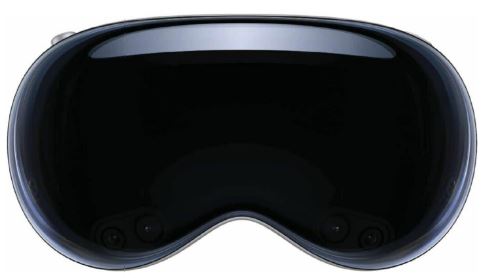Prøve GULL - Gratis
Apple Vision Pro: a virtual reality expert gives his verdict
BBC Science Focus
|July 2023
David Reid, a professor of Al and spatial computing, explains why Apple is leading the way when it comes to virtual reality

Apple isn’t exactly known for being the pioneer of new technology. Whether it’s smartphones, music players or computers, Apple is rarely first out of the gate.
Instead, it waits. A few years go by, technology advances and after its competitors have released a few versions of their devices, Apple swoops in with its first iteration of the technology – one that’s refined, powerful, stylish and always extremely expensive.
Years on from the initial boom of virtual reality, Apple has finally played its card, unveiling its first virtual reality headset. It might be late to the party, but Apple has made its usual move, with its first ever step into virtual reality being the best model we’ve seen yet.
But what’s so good about Apple’s first venture into the world of the virtual? We spoke to David Reid, professor of AI and spatial computing at Liverpool Hope University to find out.
BLENDING REALITIES
Unlike some previous attempts at virtual reality headsets, Apple’s Vision Pro device uses a mixed-reality format. This means that, instead of blacking out the world around you, the headset mixes the virtual world with the real one.
Put the headset on and you could interact with a virtual floating monitor above your desk, play games in your living room or essentially make the real world that little bit more fun.
“The big selling point here is that Apple is trying to expand what we mean by the metaverse. Where Meta is based in virtual reality, Apple is looking at augmented reality, putting these virtual elements into the world around you,” says Reid.
Denne historien er fra July 2023-utgaven av BBC Science Focus.
Abonner på Magzter GOLD for å få tilgang til tusenvis av kuraterte premiumhistorier og over 9000 magasiner og aviser.
Allerede abonnent? Logg på
FLERE HISTORIER FRA BBC Science Focus

BBC Science Focus
World's biggest cobweb is home to 100,000 spiders
Spiders don't normally create such large colonies, so there's no need to worry about finding one in your basement
1 min
February 2026

BBC Science Focus
A dementia vaccine could be gamechanging – and available already
Getting vaccinated against shingles could protect you from getting dementia, or slow the progression of the disease
1 mins
February 2026

BBC Science Focus
DATA IN SPACE
An unusual spacecraft reached orbit in November 2025, one that might herald the dawn of a new era.
7 mins
February 2026

BBC Science Focus
Climate change is already shrinking your salary
No matter where you live, a new study has found warmer temperatures are picking your pocket
4 mins
February 2026

BBC Science Focus
A MENTAL HEALTH GLOW-UP
Forget fine lines. Could Botox give you an unexpected mental health tweakment?
3 mins
February 2026
BBC Science Focus
Most people with high cholesterol gene don't know they have it
Standard testing struggles to detect the condition
1 mins
February 2026

BBC Science Focus
HOW CAN I BOOST MY IQ?
If you're serious about getting smarter, it's time to ditch the brain-training apps
4 mins
February 2026

BBC Science Focus
Humans are absolutely terrible at reading dogs' emotions
Think you can tell how our furry friends are feeling? Think again
1 mins
February 2026

BBC Science Focus
HOW TO TEACH AI RIGHT FROM WRONG
If we want to get good responses from AI, we may need to see what it does when we ask it to be evil
3 mins
February 2026

BBC Science Focus
What Australia's social media ban could really mean for under-16s
Many people think social media is bad for our kids. Australia is trying to prove it
5 mins
February 2026
Translate
Change font size

